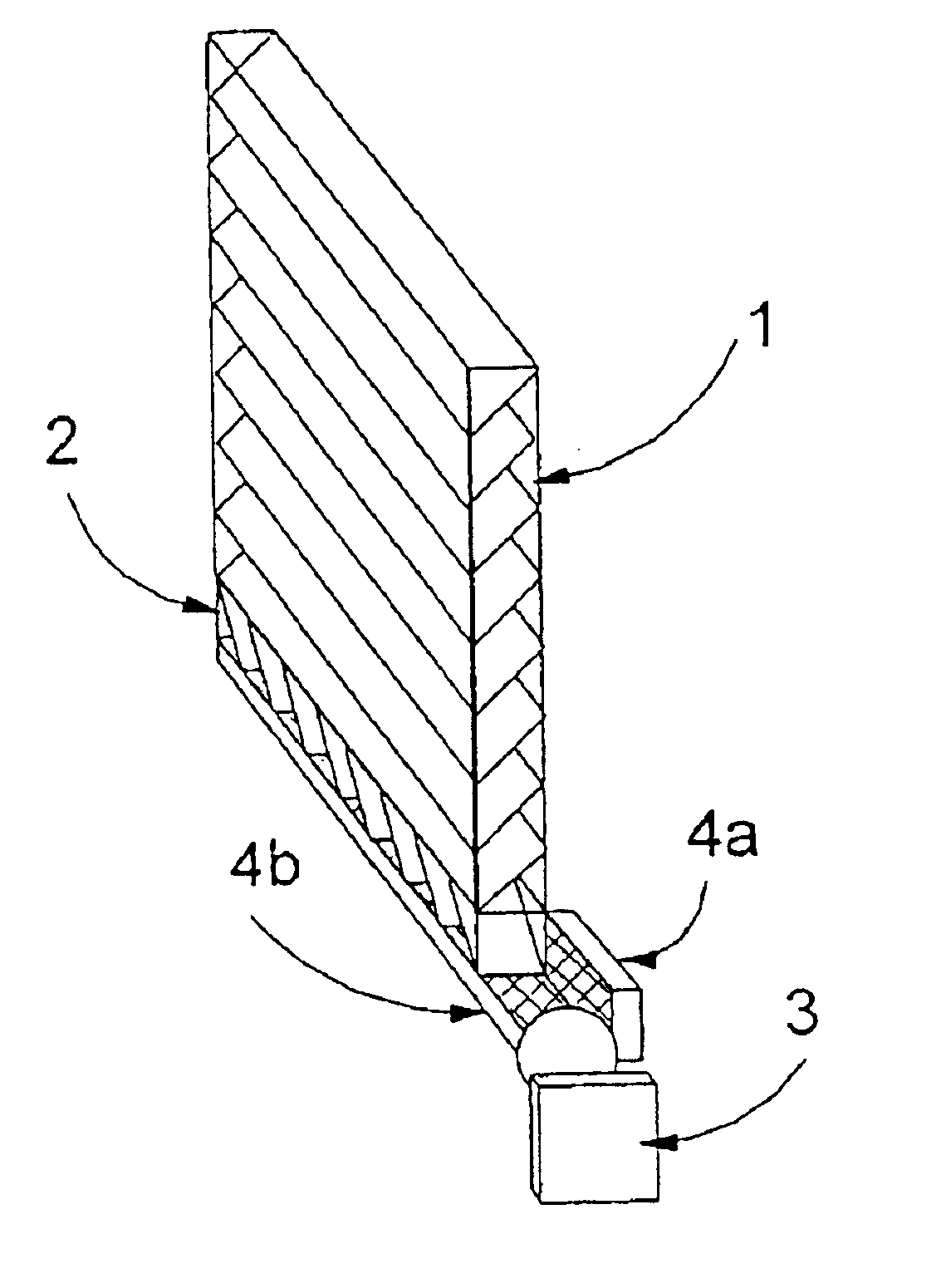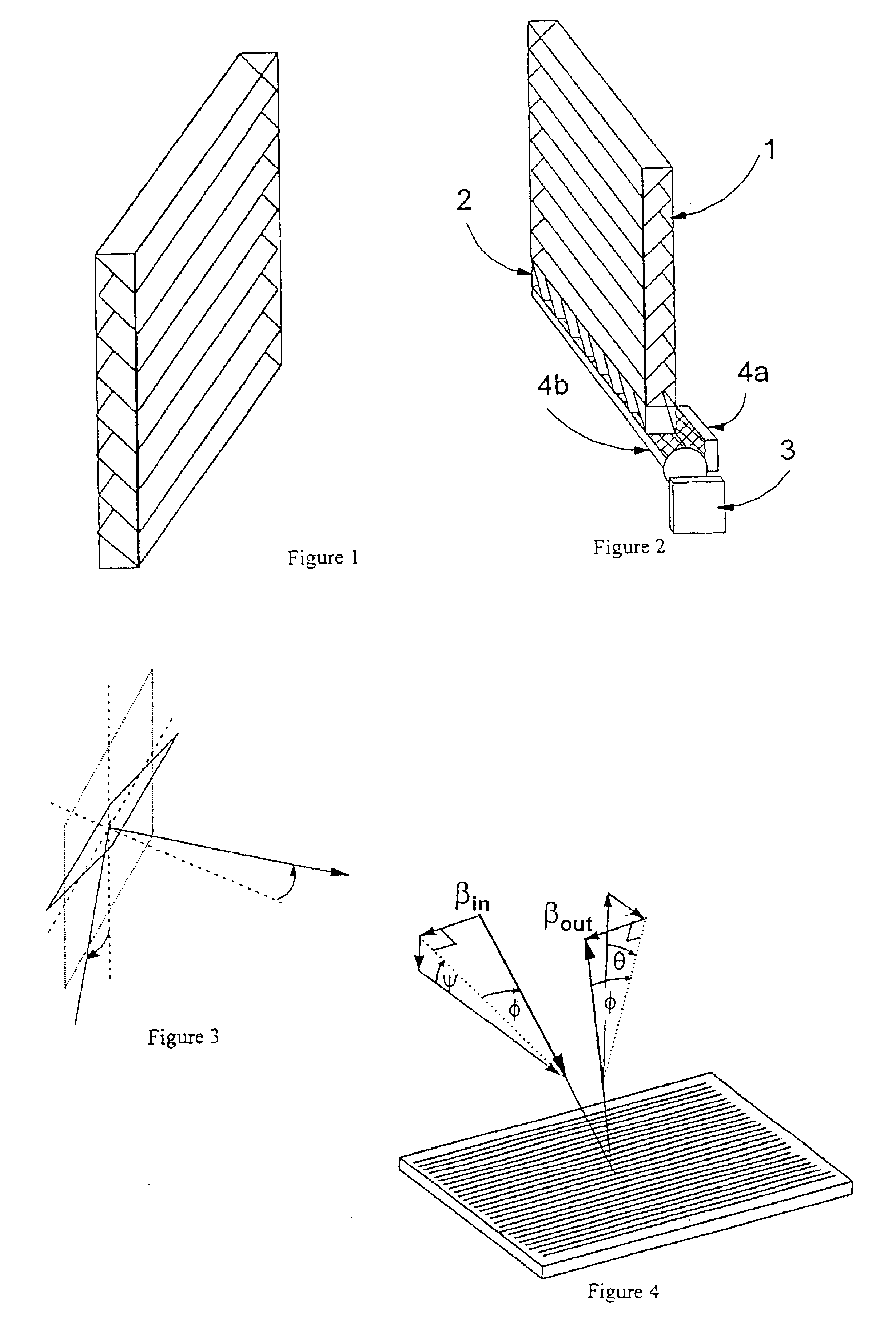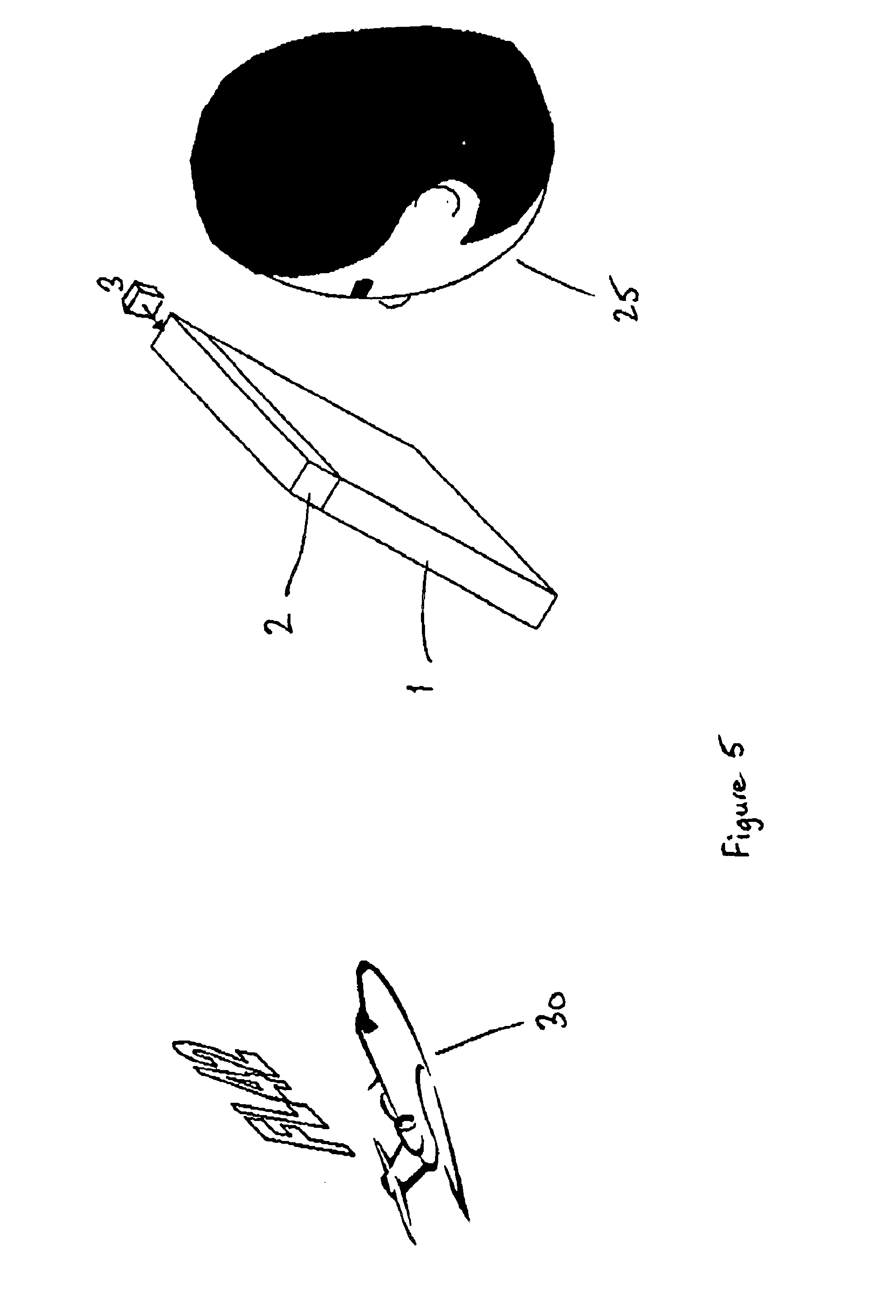Far-field display
a technology of projection display and display screen, applied in the direction of static indicating device, lighting and heating apparatus, instruments, etc., can solve problems such as application to far-field imaging
- Summary
- Abstract
- Description
- Claims
- Application Information
AI Technical Summary
Benefits of technology
Problems solved by technology
Method used
Image
Examples
Embodiment Construction
The transparent slab 1 shown in FIG. 1 is made by cutting approximately 0.5 mm thick sheets of highly transparent float glass into rectangular strips, then laying them one on top of another and in parallel so that their long sides are all in the horizontal, but their short sides are all at 45° to the horizontal. The stack is suffused with glue of a refractive index chosen so that the dielectric interface between glue and glass is weakly reflecting, then the stack is polished into a cuboid slab with faces parallel to the edges of the glass strips.
A transparent rod 2 is made in the same way as the transparent slab 1, except that the rod 2 has an approximately square cross-section corresponding to the thickness of the slab. FIG. 2 shows how the flat-panel projection display is assembled by focussing a video projector 3 into one end of the rod 2, then placing the rod 2 adjacent and parallel to the base of the transparent slab 1 with such an orientation that light from the video projecto...
PUM
 Login to View More
Login to View More Abstract
Description
Claims
Application Information
 Login to View More
Login to View More - R&D
- Intellectual Property
- Life Sciences
- Materials
- Tech Scout
- Unparalleled Data Quality
- Higher Quality Content
- 60% Fewer Hallucinations
Browse by: Latest US Patents, China's latest patents, Technical Efficacy Thesaurus, Application Domain, Technology Topic, Popular Technical Reports.
© 2025 PatSnap. All rights reserved.Legal|Privacy policy|Modern Slavery Act Transparency Statement|Sitemap|About US| Contact US: help@patsnap.com



